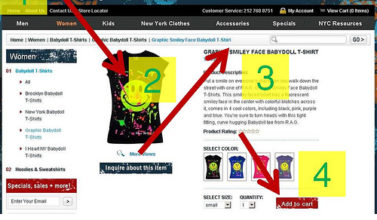
If you really think about it, the term digital marketing may seem misleading. For those who don’t know, digital marketing is not just about the internet, SEO or social media. Fact is, there are essentially two types of digital marketing; online and offline marketing. And within each of those, there are even more elements and categories to consider.
Among others, digital marketing include websites, search engine optimisation (SEO), search engine marketing (SEM), paid advertising (PPC) and social media. While it certainly is about promoting products or services through digital technologies, it also involves display advertising and other forms of media, online or offline.
Bear with us as we explain what you need to know about digital marketing. It’s such an interesting topic that we decided to do a blog series looking at the pillars of digital marketing.
What Is Digital Marketing (Online Marketing)?
This is often referred to as internet marketing, online advertising or web marketing and consists of seven main categories.
- Search engine optimisation (SEO)
- Search engine marketing (SEM)
- Content marketing
- Social Media Marketing (SMM)
- Pay-per-click advertising (PPC)
- Affiliate marketing
- Email marketing
To avoid writing a book on this stuff (which we already have), part one of the blog series will focus on SEO including:
- Black hat SEO
- White hat SEO
- Grey hat SEO
Part 1: Search Engine Optimisation
Most of you probably already know what SEO stands for but what do you need to optimise? With so much content online, how do you stand out from the rest? The result of SEO is essentially driving organic (non-paid) traffic or visitors clicking on your website in search results. SEO attempts to improve and grow a brand’s ranking in organic search engine results. It’s the process of optimising your online content in such a way that search engines want to show it at the top of search results based on specific keywords.
If you’re selling a product or service and want people to find your business first, you need to optimise your content to appear higher on SERPs (search engine result pages). There is usually more than one way of doing something and ranking content is no different. Do you know the difference between black hat, white hat and grey hat SEO?
Black Hat SEO
Putting it plainly, black hat SEO optimises your content for search engines only without considering human users. While search engines have their way of curbing this, many people still bend and break the rules to rank first. Black hat SEO is a sure way to make loads of money short-term but it’s not a sustainable approach. It often results in ‘spammy’ pages that search engines usually ban very fast. In addition, the marketer is often severely punished which affects their future digital marketing endeavours.
White Hat SEO
Conversely, white hat SEO focuses on your human audience and is the only way to build a sustainable online business. If you practice white hat SEO, you’ll remain above board in terms of search engine updates, rules and regulations. In doing so, you maximise your chances to rank high on SERPs without resorting to underground tactics. It’s all about giving your audience best possible content that is easily accessible while conforming to the rules of search engines.
Grey Hat SEO
It never is quite as simple as black and white, is it? Just when you think you know it all, something else pops up and this time it’s Grey Hat SEO. This approach is somewhere in the middle where it’s not entirely innocent but also not obviously manipulative either. With the complexities of search engine algorithms, some rules aren’t as clear as they should be. Marketers often deem Google’s standards as contradictory and there we find ourselves at a crossroad. For a more in-depth explanation, take a look at this very informative article on Grey Hat SEO from Wordstream.
Thought for the week: Prioritise People Over Search Engines
There are many content writers who are still following the old keyword-focused SEO method to drive search results. They should instead focus more on how human visitors engage with a specific brand, product or service. The new SEO approach is all about ROI and reaping the rewards from creating engaging and valuable content.
For those who only use single keywords, it’s time to change your approach and capitalise on long-tail keywords. While it’s not guaranteed to always yield the required results, it is an added option over highly competitive single keywords. Either way, your content should always aim at helping someone instead of focusing on what search engines are after.
If you know how SEO works, implement the right strategy for your business and focus on people, you’re on the right track. This way you are likely to write helpful content without too much effort and search engines will reward you. Remember, search engines follow people and their online behaviour so quality content always matter. With better quality content, you improve the user experience which ultimately leads to building audience trust.
Next time we will look at implementing SEO and touching on content, page quality, backlinks, keywords and more. Remember this, the more you do for your website in terms of SEO, the more organic traffic it will generate.
We hope that we enlightened you a little more about SEO and that you will follow this blog series every week. It promises to contain some useful information and content-rich links. If you need expert digital advice right away, get in touch with WSI eMarketing. We specialise in SEO, PPC, Web development, Marketing Automation, Online Reputation Management and Social Media.
Related Post
Top Tips for Product Page...
As the internet evolves and user expectation becomes increasingly sophisticated, creating...
- May 31, 2011
- By Rob Thomas
- e-Commerce
How To Drive Sales With...
Landing pages have long been the primary tool of the web-savvy marketer. Whether the...
- June 12, 2011
- By Nadine Thomas
- e-Commerce
Top Tips for Product Page...
Your website marketing activities are geared to getting a qualified audience to your...
- June 14, 2011
- By Rob Thomas
- e-Commerce
Content Sharing Via Social...
Target marketing to meet your business goals Is your business using social media channels...
- June 15, 2011
- By Nadine Thomas
- Digital Marketing
Can you get help to fund your...
If you need a new website, it’s possible that you could get help towards the cost....
- May 30, 2013
- By Rob Thomas
- Digital Marketing
10 Best Ways to take...
Others may have seen a pop-up ‘invitation to upgrade’ message when they accessed...
- June 1, 2013
- By Rob Thomas
- Digital Marketing











Leave a Comments